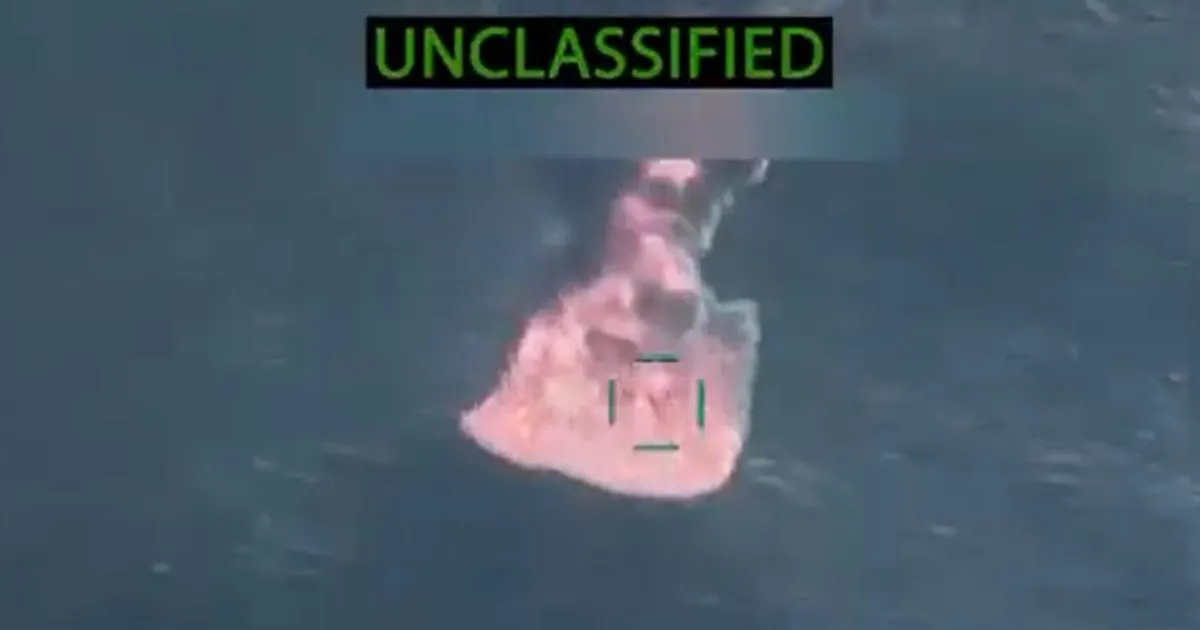
On Monday, the U.S. military executed a series of airstrikes targeting four vessels suspected of narcotics trafficking in the eastern Pacific Ocean. Defense Secretary Pete Hegseth reported that the strikes resulted in the deaths of 14 individuals involved in drug trafficking operations, leaving one survivor. These significant military actions highlight the ongoing efforts against drug trafficking, particularly in regions known for such activities.
The four vessels were struck in three separate operations, as detailed by Hegseth. The latest strikes bring the total death toll in President Trump's campaign against alleged narcotics traffickers in the Caribbean and eastern Pacific to over 50. These vessels were identified by U.S. intelligence as being involved in transporting illegal narcotics along established narco-trafficking routes.
The first strike targeted a vessel with eight male narco-terrorists aboard, while the second strike resulted in four narco-terrorists being killed. The third vessel had three male narco-terrorists on board during the operation. Overall, a total of 14 individuals associated with these illicit activities were killed across the three strikes, with one individual surviving the encounters.
All military actions occurred in international waters, ensuring that no U.S. forces were harmed during the operations. Following the strikes, Hegseth mentioned that U.S. military personnel immediately initiated search and rescue efforts for the survivor. Additionally, Mexican authorities have taken on the responsibility of coordinating the rescue operations. However, the fate of the survivor remains unclear at this time.
While President Trump is currently on a multi-day trip to Asia, he has assured that his administration will provide Congress with information regarding these strikes, though he does not intend to seek a formal declaration of war. Trump emphasized the administration's aggressive stance, stating, "I think we're just going to kill people that are bringing drugs into our country." His comments reflect a commitment to combat drug trafficking with lethal force.
In light of these operations, Trump also hinted at the potential for land strikes in Venezuela, underscoring the escalating tensions between the U.S. and the South American country. This prospect has raised concerns among lawmakers regarding the implications of such military actions.
Senator Rand Paul, a Republican from Kentucky, has voiced his opposition to the military airstrikes, labeling them as extrajudicial killings. In an interview with Fox News Sunday, Paul expressed concerns that Congress has not been adequately informed about the ongoing strike campaign, raising questions about the legality and oversight of these military operations.
The recent military actions underscore the U.S. government's intensified efforts to combat drug trafficking and its associated violence, drawing attention to the broader implications of such strategies in the fight against narcotics. As the situation develops, the balance between national security and adherence to legal frameworks remains a pivotal issue for lawmakers and the public alike.